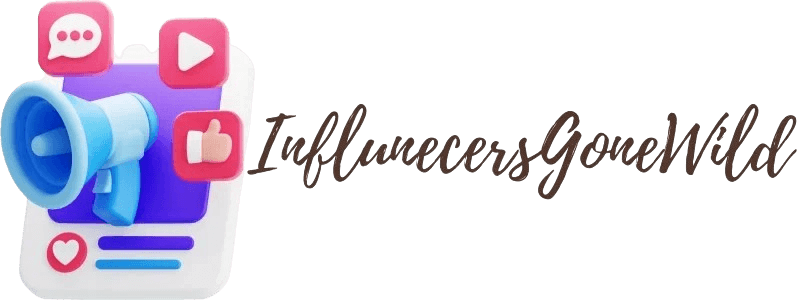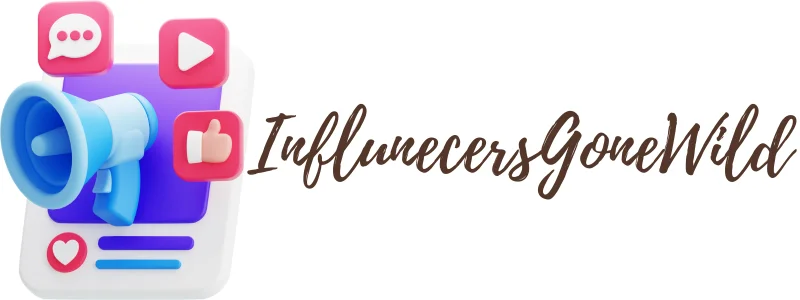How AI-Generated Influencers are Changing the Marketing Landscape
The world of marketing has always been in a constant state of evolution. From traditional print advertising to the rise of social media influencers, brands have adapted to meet the changing preferences of consumers. Today, a new player is entering the scene: AI-generated influencers. These virtual personalities, powered by artificial intelligence, are reshaping the way brands approach marketing by offering a unique blend of creativity, engagement, and scalability. In this article, we explore how AI-generated influencers are changing the marketing landscape and how brands can leverage them to stay ahead of the competition.

The Rise of AI-Generated Influencers
AI-generated influencers are virtual personalities created using advanced algorithms and machine learning. Unlike traditional influencers, who are real people with large followings on social media platforms, AI influencers are entirely digital. They are designed to look and behave like humans, but they are entirely controlled by AI.
These influencers can be tailored to fit any brand’s voice, style, or target audience. Whether it’s a young, trendy influencer promoting a fashion brand or a professional, authoritative persona representing a tech company, AI-generated influencers offer brands the ability to create highly personalized content that resonates with specific demographics.
The appeal of AI-generated influencers lies in their versatility and cost-effectiveness. Unlike human influencers, who may require compensation, time commitments, and may be prone to controversies or changes in public opinion, AI influencers are programmed to always align with a brand’s values and messaging. This ensures a consistent and reliable voice for the brand at all times.
The Impact on Consumer Engagement
One of the primary reasons brands have embraced influencers in their marketing campaigns is the ability to engage directly with consumers. Consumers, especially younger generations, value authenticity and connection, which is why they are more likely to trust influencers over traditional advertisements. However, with the rise of AI-generated influencers, the dynamic of consumer engagement is evolving in significant ways.
AI-generated influencers can interact with consumers in real-time, respond to comments and messages, and create personalized content on demand. This allows brands to maintain a constant presence on social media without the need for human intervention. Additionally, AI influencers can be programmed to understand the preferences and behaviors of their target audience, allowing them to deliver highly tailored messages that resonate more effectively.
For example, an AI influencer can analyze the interests and behavior of a brand’s followers and create content that is specifically designed to appeal to their needs and desires. This level of personalization can help brands build deeper connections with their audiences, driving higher levels of engagement and brand loyalty. Check out our comprehensive article on Benefits of AI Human Generators for additional information.
The Role of AI in Content Creation
Content creation is one of the most time-consuming and resource-intensive aspects of marketing. Traditional content creation often requires a team of writers, designers, photographers, and videographers to produce high-quality material. However, AI-generated influencers can streamline this process by creating content with minimal human input.
AI influencers can generate written content, design visuals, and even create videos. This is where invideo AI comes into play. With invideo AI influencer generator, brands can create their own virtual influencers in just a few clicks. This tool allows businesses to generate custom influencers that perfectly align with their brand’s identity and messaging, providing a quick and efficient way to create content that feels authentic and engaging.
Moreover, AI-generated influencers can create videos that feature their virtual persona. These videos can range from simple product demos to more complex storytelling narratives. By using an AI video generator, brands can create dynamic video content that highlights their products, services, or values, all while maintaining the personality and presence of their AI influencer.
Benefits for Brands and Marketers
The benefits of using AI-generated influencers extend far beyond just cost savings. Here are some key advantages that brands can gain by incorporating AI influencers into their marketing strategies:
- Cost-Effectiveness: As mentioned, AI influencers do not require the same level of compensation as human influencers. There are no expenses related to travel, product gifting, or influencer management. Brands can create an entire campaign with a virtual influencer at a fraction of the cost.
- Scalability: With AI-generated influencers, brands can easily scale their marketing efforts. Brands can create multiple influencers to target different segments of their audience, producing content at a much faster rate than traditional influencer campaigns would allow.
- Consistency: AI influencers are programmed to follow a specific brand voice and persona, ensuring that the messaging remains consistent across all content. This consistency helps reinforce brand identity and build trust with consumers over time.
- Customizability: AI influencers can be tailored to fit any brand’s personality and audience. Whether a brand is targeting Gen Z or professionals in a specific industry, AI influencers can be programmed to suit the tone and style of the target market.
- Increased Engagement: Since AI influencers can personalize content and engage with followers in real-time, brands can see an increase in engagement levels. AI-generated influencers can create content that speaks directly to their audience’s interests, resulting in higher interaction rates and better audience retention.
AI-Generated Influencers in Different Industries
AI-generated influencers are making waves across various industries. Here’s a look at how different sectors are utilizing virtual influencers to enhance their marketing strategies:
- Fashion: Fashion brands are using AI influencers to showcase their clothing lines, offer styling tips, and engage with consumers. These influencers can be programmed to try on different outfits, model clothing, and even interact with followers by answering fashion-related questions.
- Travel: The travel industry is leveraging AI-generated influencers to promote destinations, hotels, and experiences. Virtual influencers can provide personalized travel recommendations, guide consumers through virtual tours, and even share travel tips and advice.
- Tech: Technology companies are using AI influencers to demonstrate their products, explain complex technical concepts, and engage with customers on a personal level. AI influencers can offer tutorials, answer customer questions, and provide hands-on demonstrations of new technologies.
- Beauty: Beauty brands are utilizing AI influencers to create makeup tutorials, skincare routines, and beauty tips. These influencers can provide real-time product reviews, give personalized recommendations, and share the latest beauty trends with their followers.
Challenges and Considerations
While AI-generated influencers offer many benefits, there are also challenges that brands must consider. One of the key challenges is ensuring that the AI influencer remains authentic and relatable. Since these influencers are entirely virtual, there is a risk that they may come across as too artificial or disconnected from the audience.
To address this, brands must focus on creating AI influencers that are not only technologically advanced but also emotionally intelligent. The goal is to make AI influencers feel human, relatable, and engaging, so they can form genuine connections with their audience.
Another consideration is the ethical implications of using AI influencers. As AI technology continues to advance, questions surrounding transparency and trustworthiness will need to be addressed. Brands will need to ensure that they are clear about the use of AI influencers in their marketing campaigns, so consumers are not misled.
Conclusion
AI-generated influencers are revolutionizing the marketing landscape by offering brands a new way to engage with their audiences. These virtual personas can create personalized content, enhance consumer engagement, and provide a scalable, cost-effective solution for brands looking to stay ahead of the competition.
With tools like AI influencer generator and AI video generators, creating AI-driven influencers has never been easier. As AI technology continues to evolve, the potential for these influencers to shape the future of marketing is limitless.
By embracing AI-generated influencers, brands can stay ahead of the curve and ensure that their marketing campaigns remain innovative, engaging, and relevant in an increasingly digital world. You can visit influencers gone wild for more trending posts.

